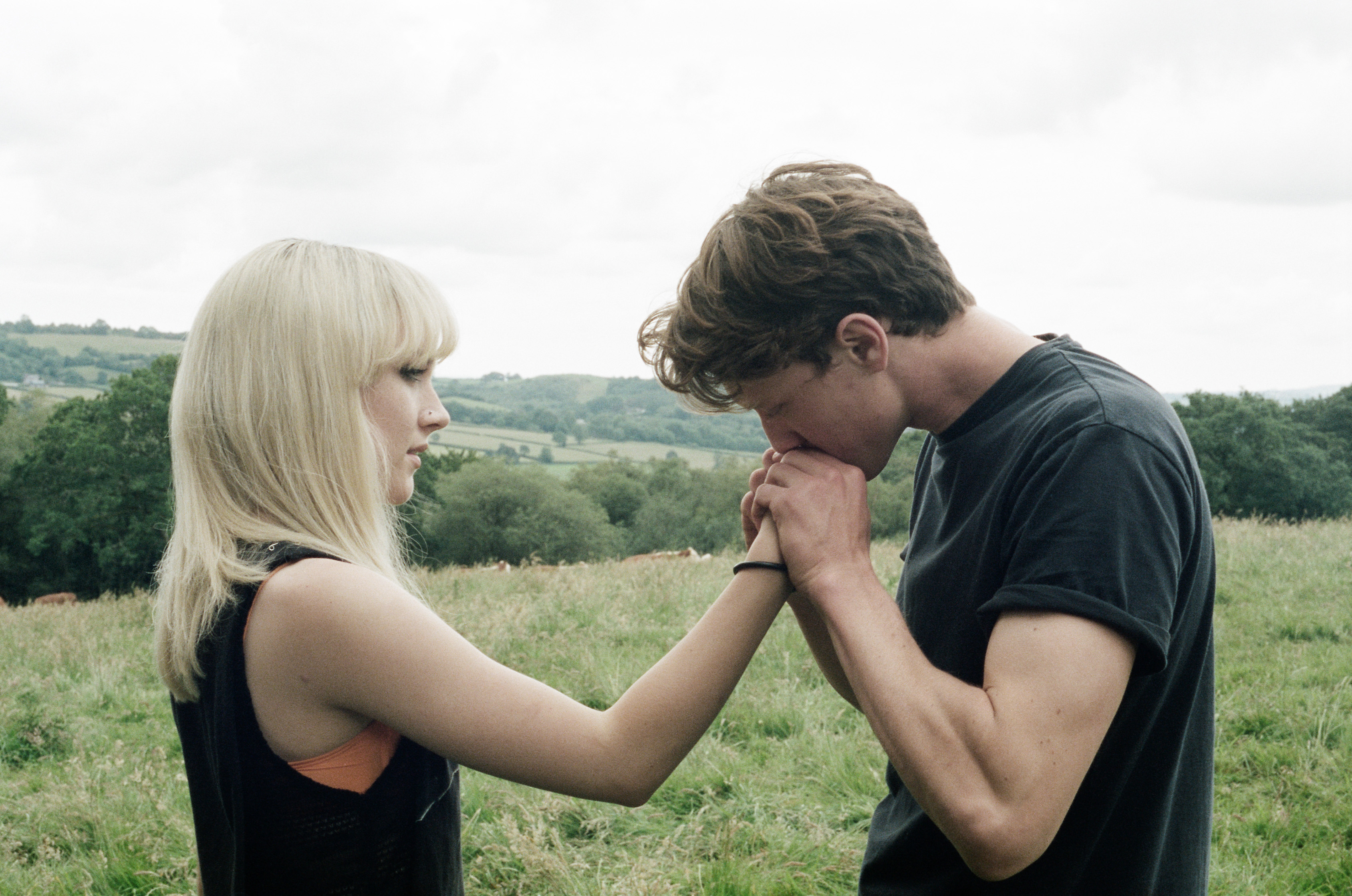How I Live Now
Opens Fri., Nov. 8 at Sundance. Rated R. 101 minutes.
Do teenagers even read the newspapers these days? (No, I know.) Or follow world events on Twitter or TV? Adapted from a 2004 young-adult novel by Meg Rosoff, this movie’s 17-year-old heroine has no interest in world affairs. Why, when she’s shipped from New York to stay with English cousins for the summer, are there armed soldiers at the airport? Petulant, eye-rolling Daisy (Saoirse Ronan) never considers such matters. She’s mad at her father back home, now remarried with a new baby on the way. She initially hates her cousins’ shabby-genteel country home, but never wonders why Aunt Penn, some sort of policy expert, is planning for a third European war.
When it comes, the force of a distant nuclear blast is portended by an eerie wind and frightened dogs. Then a light cloud of ash falls on stranded Daisy, 14-year-old Issac, little Piper, and handsome 18-year-old Eddie (George MacKay), a falconer upon whom Daisy had already developed a silent crush. With Aunt Penn away in Geneva, suddenly they’re a survivalist band in a nation without electricity, ruled by martial law, with roving guerrilla bands in the woods. Needless to say, Daisy will have to get over her teen angst and make like Katniss Everdeen in The Hunger Games. This Ronan does with authority. Once a bratty child in Atonement, she’s growing nicely into her nascent stardom.
Kevin Macdonald might not seem the likeliest director for this post-apocalyptic teen romance, and the familiar first kisses and “I will find you!” declarations are pretty routine. Yet How I Live Now is weirder and stronger in depicting England’s descent into violence and near-fascism—like a prelude to Children of Men. A primal switch has been flipped, as if morality disappeared with the power grid. Then you remember how Macdonald’s The Last King of Scotland and Oscar-winning 1999 doc One Day in September (about the 1972 Munich Olympics terrorist attack) also charted the abrupt, bloody breakdown of society. Daisy, on her long trek to find Eddie, never asks who the enemy is or why the UK has become a police state. Since Macdonald isn’t directing this film for Times-reading grownups, maybe there’s no point to politics. Still, I think the movie’s intended audience may not remember a shirtless Eddie as much as it will the yipping foxes feasting on stacked corpses at an internment camp. It certainly changes Daisy—and for the better.
bmiller@seattleweekly.com








